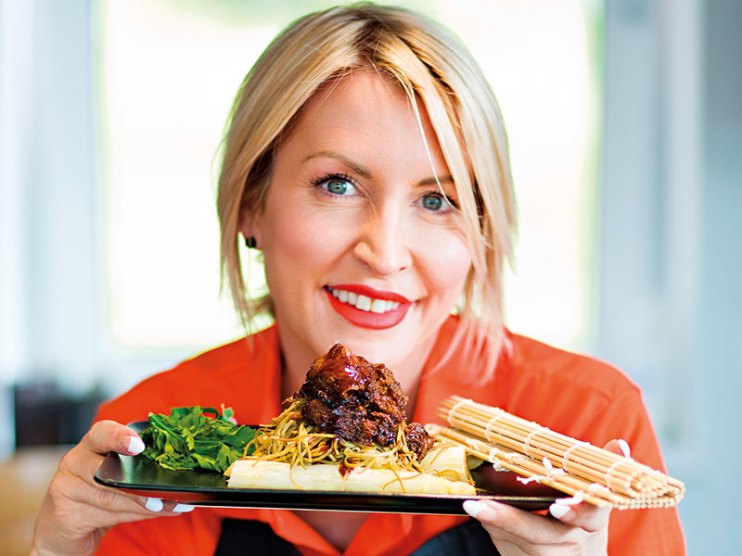Heather Mills hits back after striking rescue deal for collapsed vegan food firm VBites

Heather Mills has hit back after striking a rescue deal for her vegan food business which racked up debts of more than £10m when it collapsed into administration at the end of 2023, new documents have revealed.
A total of 20 members of staff were made redundant when VBites called in Interpath Advisory in December while a further 60 people lost their jobs when the company’s assets were sold to a firm ultimately owned by Heather Mills for £1m. However, the business owner has said she has rehired 40 people.
The former wife of Sir Paul McCartney bought VBites, which was then called Redwood Wholefood, in 2007. The firm was founded in 1993 and operated out of three leasehold premises in Corby, Northamptonshire and one in Peterlee, County Durham.
For the year to March 31, 2023, VBites generated net sales of £7.7m and made an EBITDA loss of £3.1m.
In its report, Interpath Advisory said: “In recent years, the company has been loss making, compounded by the relocation of its operations from its previous facility at Benton to Peterlee in 2021 and the associated increase in operating costs.
“The company faced numerous additional challenges, including the impact of rising raw material costs, energy prices and a reduction in demand for alternative protein products in the wake of the cost-of-living crisis.”
The move to Peterlee coincided with German investor NRH acquiring 34 per cent of the company’s shares. Seckloe, which is ultimately owned by Heather Mills, owned the remaining 66 per cent.
How much did VBites owe to its creditors?
Secured creditor Seckloe, which is ultimately owned by Heather Mills, was owed £4.8m while NRH was owed £2.5m.
Seckloe agreed to waive its debt in full as part of the deal for the company’s assets. Interpath said NRH is likely to receive £400,000 plus interest of around £45,000.
Ordinary preferential creditors (employees) and secondary preferential creditor (HMRC) are estimated to be owed £43,009 and £62,262 respectively. Interpath said it expects both sets to be repaid in full.
When the company was sold, £112,346.56 was paid to HSBC to settle outstanding finance liabilities for certain plant and machinery items.
The firm added that it is likely there will also be a distribution to unsecured creditors, who are owed around £2.3m, as well.
How did VBites enter administration?
In its report, Interpath Advisory said: “The move to the premises in Peterlee significantly increased the company’s fixed cost base owing to the scale and size of the premises.
“This, alongside rising raw material prices, rising energy and labour costs and the cost-of-living crisis, lead to consumers opting for cheaper alternatives to the vegan products supplied by the company.
“This resulted in an even larger cast requirement for the business to enable it to continue to operate as a going concern.
“These issues created a large funding requirement but negotiations between the shareholders around further injections stalled.
“As a consequence of an impasse, the directors concluded that it was appropriate to take the decision to place the company into administration.”
What has Heather Mills said?
In a statement issued to City AM, Heather Mills said: “The administrators fired 80 people, but I re-employed 40, because the rest had taken jobs, plus nobody owed anybody 10m.
“I gave up the money that was owed to me to help keep the jobs and keep the business going as I had to buy out the other shareholder through the administrators.
“I was devastated when VBites was forced, unnecessarily with 3 days notice, into administration. It was agreed between both shareholders that we would always give each other three months notice, knowing the figures 6 months ahead set for the company, so I was doubly shocked that it went straight into administration, even though I gave viable solutions.
“But I strongly believed that the next-generation technology that VBites had developed and the work it had done still had a huge role to play in assisting the transition of the food market to a healthier and more sustainable place.
“I was also not happy being told that many of my loyal and hard-working staff were losing their jobs. I was cut out of everything.
“This is why I have chosen to resurrect the company myself, at great personal expense, and take control of the operations personally, moving back to the North East to ensure that we are still able to make a positive contribution to the future of our global food economy.
“We have already developed a version 2.0 of plant-based food, soon to launch, that we believe will be a market mover and will help all of those people attempting to make a flexitarian or plant-based/vegan transition achieve their goals more easily, both with variety and deliciousness. Watch this space.”
